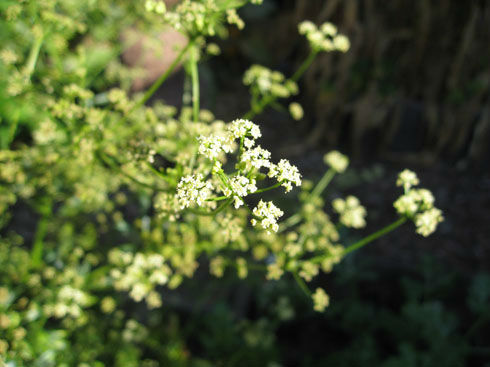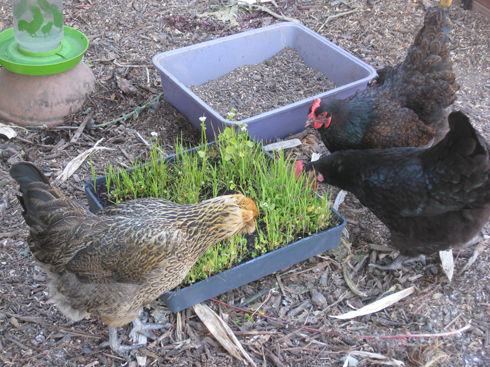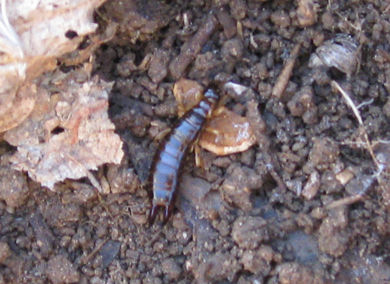Another great question came in to Ask Gardenerd:
“I don’t understand what the difference is between organic seeds and
regular seed packets. Are there any benefits of purchasing organic
seeds? Can I buy regular seeds and just grow them organically with the
same results?”
The short answer to your question is yes, you can essentially get the same results with regular seeds as with organically grown seeds. Here, for the record, is the difference:
Organic seeds are just that – organically grown. In other words, they are grown using sustainable methods from start to finish. No pesticides, no chemical fertilizers, all on land that has been cultivated for at least 3 years using the standards established for Certified Organic farming. Farmers grow flowers and veggies in this fashion and then let the plants “go to seed”, which produces the seeds that come to us in packets.
Regular seeds have been grown and harvested from plants that were treated with pesticides and fertilizers on land that was not necessarily cultivated in a sustainable way, and therefore have an environmental impact as such.
The bottom line is that it’s really up to you. In our world, it’s really hard to be completely sustainable without a lot of effort, but there are things we can do to lighten our load. A lot of people buy organic produce, or purchase carbon offsets for vacation trips. Others bring canvas bags to the grocery store or buy recycled products. Buying organic seeds is just one more way of supporting sustainable practices at production level.
That said, sometimes companies can’t afford the organic certification, but they usually state in the opening pages of their seed catalogues that they grow seed without chemical pesticides or fertilizers. I will back these companies just as I would a certified organic company. I’ll go so far as to say that as long as a seed company has a holistic approach to providing seed (small family farms are most often good for this), then you probably can’t lose.
I hope this helps clear up the confusion. Thanks for writing in. Happy gardening!




Hello,
I’m having a horrible time finding organic herbs where I usually don’t have any trouble. My organic seedlings arnt fat along enough to transplant. My local Home Depot only has treated herbs and veggies. If I use organic soil, fertilizer and warm castings will it make a difference? Will the toxins ever wash away? Thanks
Home Depot does have a line of organics, but otherwise I wouldn’t buy plants from Home Depot. If you haven’t already asked at your local nursery, they may be able to order organics for you. Check farmers markets for seedling vendors as well. Most of them don’t spray what they sell. To answer your question about non-organic seedlings, most nurseries don’t spray their seedlings with neonicotinoids, but they do use synthetic fertilizers. If you grow them organically once you get them home, eventually those fertilizers will be used up and your organic methods will take over. Neonicotinoids have been known to stay in plant tissues for up to 7 years, so check with your nursery to see what they spray if they do spray.
I can’t get organic soil to plant my new raised garden or organic plants. I have been eating organic as much as possible for several years. If I do not add chemicals if any kind. Will lesson results of toxicity? Anything I can do to soul?
I’m sorry you are having trouble finding organic seedlings and soil for your garden. Times are crazy around here. Most vegetable seedlings are sold young enough that you can raise them organically once you get them home to your garden. Any chemical fertilizers will eventually be used up by the plant and your organic care will take over from there. Most soils (except MiracleGro) are labeled as “natural” or “organic” and those will be fine for your garden. The Scotts/MiracleGro brand is laced with chemical fertilizers, so I don’t recommend using those at all. Find another option and it’s worth the drive to get it. You can add plenty of compost to your soil and that will help boost microbial life in the soil, and they will help improve your soil over time as well. Some fungi and bacteria can neutralize toxins in soils over time as well. I hope this helps.
Hi Carol.
We’ve been finding the same issue. We’ve opted for compost that’s been let to sit heating for 6 weeks (has to call compost brands to ask) which rids most of the bad stuff. Buying a compost that is made from garden waste is better. Animal compost usually has more residual pesticides and herbicides. Also, opting for pea straw over regular straw or hay. Much hay/straw is treated with a terrible herbicide that sticks around for years and years and has been known for killing while garden crops .
Hi Keith,
To answer your question more thoroughly would take the work of a scientist to test the seeds at a cellular level for traces of pesticides.
I answered the question as it was asked: What is the difference between organic and non-organic seed? The difference is, as I said, that organic seed gathered from the plant is grown according to organic standards for organic seeds without chemical pesticides or fertilizers, whereas non-organic seeds are gathered from plants that have usually been treated with chemical fertilizers and pesticides. Buying organic seed supports organic farming methods, which uses far fewer petroleum-based products in the process.
I’m sure there are plenty of dishonest seed companies paying scientists good money to say that there are no trace chemicals in commercially grown seed (the FSA has recently published such a study about organic vs. non-organic food), but basic botany will tell you that a plant takes in a good percentage of its nutrients through its leaves, and if you’re spraying those leaves with pesticides, the plant will absorb it.
That said, the seed of any plant is very small, and I highly doubt that the plant born from that seed would generate its own chemical pesticides within the new plant, (although that would make for an interesting movie – the pesticide-laden seed that morphs into a hideous man-eating plant). Keep in mind that Organic labeling shows that a farm took to time and expense to go through the certification process, and it also guarantees that no GMO’s were used in production.
So it basically comes down to the choice to support organic farming methods with your purchase or not. Either way, if you are using organic methods to grow your food, you’re ahead of the game, and you won’t wake up to an impromptu performance of Little Shop of Horrors in your greenhouse.